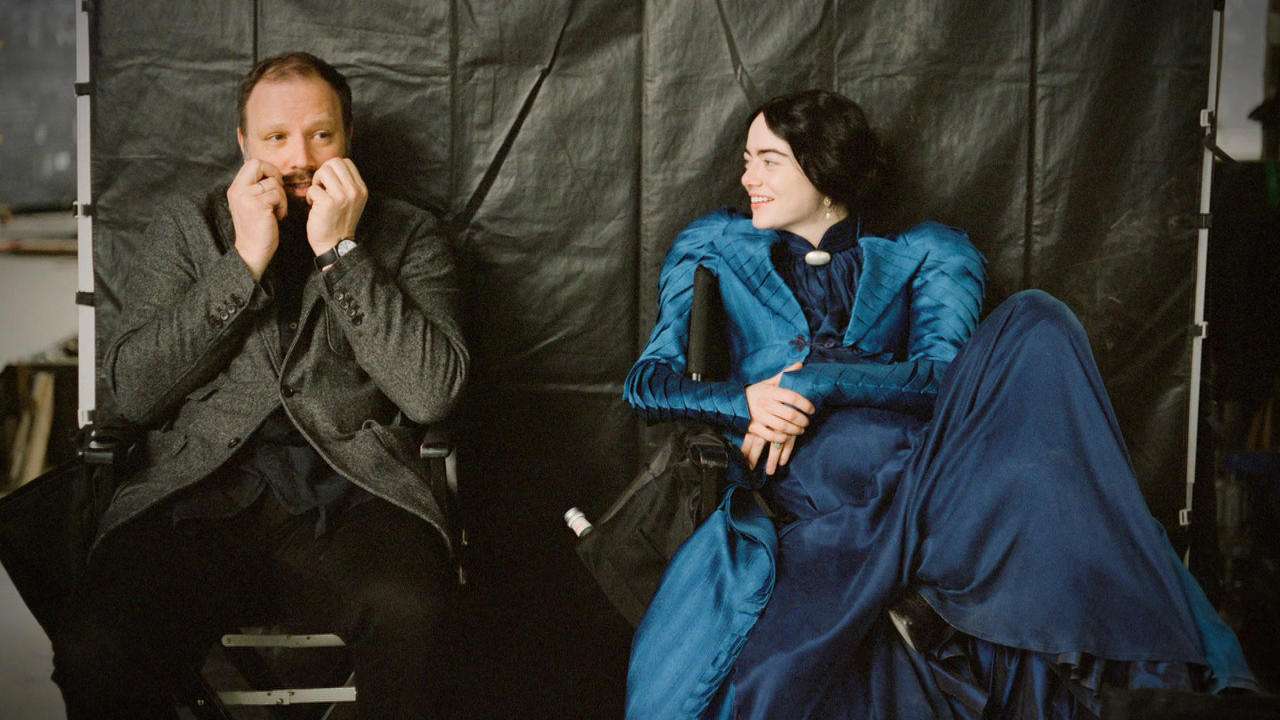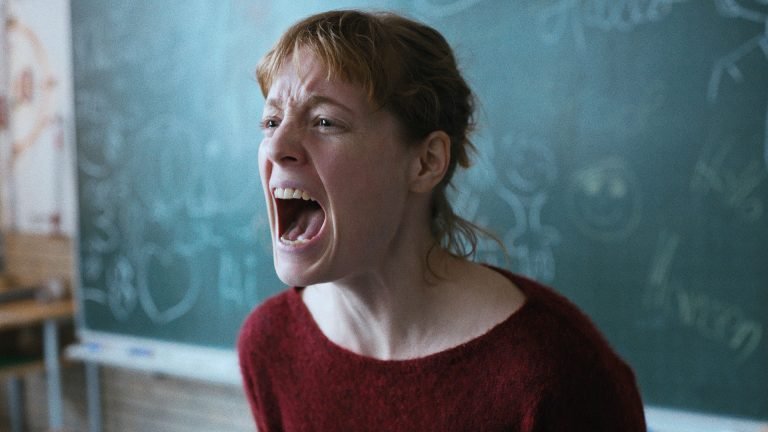It is common knowledge that Abel Ferrara’s critically panned “New Rose Hotel” necessitates multiple viewings. Film critic and historian Tag Gallagher, in his essay Geometry of Force: Abel Ferrara and Simone Weil, point that out, along with many Letterboxd comments. This is in line with the movie itself, where, in the end, Willem Dafoe’s character, X, obsessively rewatches his own memory, trying to piece together what went wrong and how with the events that came before while still finding himself in love with Sandii (Asia Argento), the only possible person who could make it all fall apart.
There’s an existentialist streak to the conclusion of Abel Ferrara’s cyberpunk romance, of trying to go back in time to fully understand what happened between the main trio of characters, X, Sandii, and Fox (Christopher Walken). The act of rewatching can only be the best way to decipher the story because we look back, the only way life can be understood while moving forward, the only way life can be lived.
At the very beginning of New Rose Hotel, the duplicitous themes of the narrative are already apparent. The images show Hiroshi (Yoshitaka Amano), a high-level Japanese scientist, walking the streets with his wife. Between transitions, a camera can be seen very briefly, hinting that the couple is being watched. However, the same introduction shows X wandering around. Who is really being looked at? Maybe both. The paranoia intensifies when someone tries to kidnap Hiroshi. The whole sequence is a blur, grainy images collapse, and the only information being displayed is movement: a gun being pulled, a zoom-in, and a body falling to the ground.
Things become a little bit clearer later on. X and Fox are industrial spies; their job is to get Hiroshi to change companies. A tall order, but Fox is obsessed with the idea, especially because of the one hundred million dollar reward. He quickly concocts a plan: they will seduce Hiroshi through Sandii, getting the scientist to leave his wife and the company he works for. A dangerous plan since companies are all powerful in this world, but it is a worthy one, given the payout.
Having the main goal established, Abel Ferrera in New Rose Hotel changes gears and becomes less a spy thriller, something that would clearly fit the story, but more of a doomed love story, where X, slowly but surely, falls in love with Sandii. Ferrara strips the narrative where the so-called “big” moments, such as Hiroshi’s seduction, for example, happen off-screen. He is only really concerned with the scenes focusing on the main trio’s relationship, the pull that X feels between Fox and Sandii.
 On rewatch, the sequences between the spies and Sandii become a somewhat cruel comedy. White, non-descript apartments become theaters where everyone plays a role, even if they don’t know what it is. Abel Ferrara frequently deals with male hubris, where a man believes he is unstoppable, such as the Lieutenant in Bad Lieutenant, or men who “failed” their roles, like Matt Rossi in Fear City. New Rose Hotel feels like a culmination of these themes, where Fox acts like a master puppeteer, pulling Sandii’s strings to do his bidding, and X tries to “save” her with love, only to fall on their faces. They all teach her how to behave to execute the plan perfectly. But she is already acting out all the necessary moments.
On rewatch, the sequences between the spies and Sandii become a somewhat cruel comedy. White, non-descript apartments become theaters where everyone plays a role, even if they don’t know what it is. Abel Ferrara frequently deals with male hubris, where a man believes he is unstoppable, such as the Lieutenant in Bad Lieutenant, or men who “failed” their roles, like Matt Rossi in Fear City. New Rose Hotel feels like a culmination of these themes, where Fox acts like a master puppeteer, pulling Sandii’s strings to do his bidding, and X tries to “save” her with love, only to fall on their faces. They all teach her how to behave to execute the plan perfectly. But she is already acting out all the necessary moments.
Because the reality of it all is that she has all the power. Their plan does not work without her. There are very subtle hints about their submission to her, especially concerning X. In one scene, she is seen participating in an orgy while Dafoe’s character watches from afar, helpless in the shadows. Fox instructs her on how to act, even though she very much knows how to seduce a man, much better than an old spy with a limp. They lord over her, but without her willingness to play the role that both of them have for her, they would have nothing. There’s an irony to these moments that are somewhat absent when we watch New Rose Hotel at first, but it reveals itself in subsequent viewings.
The movie’s critical reception when it was released in 1998 decried the choice of leaving out key plot points, such as the whole Sandii-Hiroshi relationship and her possible betrayal. However, this all works in service of the rug pull that the narrative tries to achieve. Neither Fox nor X could imagine anything going wrong with the plan. Their arrogance and confidence in their roles as mastermind and lover are such. By not witnessing these events, we, the audience, become confused as the characters and our privileged positions are destabilized.
By rewatching it, we are again in the shoes of the characters, i.e., X trying to find the key to it all. But his memory can only go so far. Everything is locked in place. Seeing scenes from different angles cannot solve the mystery and can only lead to a heartbreaking conclusion: he is still in love with her. Her smile is his last memory and the movie’s final image. Is it a true one? We and X can never know because afterward, there is only darkness.






![Sex, Love, Misery: New New York [2022] Review – An unfiltered look at the dating scene in the city](https://www.highonfilms.com/wp-content/uploads/2022/06/Sex-Love-Misery-New-New-York-1-768x415.jpg)

